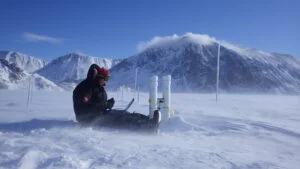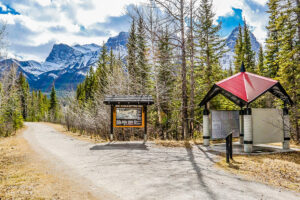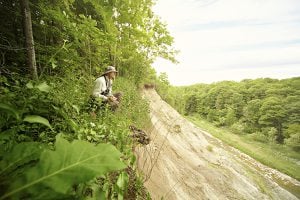
Science & Tech
20 Canadian innovations you should know about
Celebrating Canadian Innovation Week 2023 by spotlighting the people and organizations designing a better future
- 3327 words
- 14 minutes
This article is over 5 years old and may contain outdated information.
Mapping

Deciding between continuing to rent and buying a home in the new year? Looking to invest in Canadian real estate? Even if you’re simply curious about the relative cost of dwelling in different parts of Canada, the infographics below are a useful tool for a quick geographical evaluation of current real estate and renters’ markets. The median cost of residential properties in Vancouver (home to North America’s most expensive real estate), compared to the rest of the country, is in and of itself worth a look.
The reports were produced by RentSeeker.ca, a property rental website based in Toronto and used by apartment-seekers across Canada*. Their first infographic (above) shows the average cost of a home for each province and territory, as well as for 33 Canadian cities, including Vancouver ($909,293), Winnipeg ($286,818), Toronto ($641,617), Moncton ($165,018) and St. John’s ($306,803). The most useful aspect of the map, perhaps — at least for prospective homeowners — is the breakdown of salaries required to purchase properties in these price ranges**. To own an average-priced home in Vancouver, for example, requires a minimum salary of $120,297. To buy in Trois-Rivières, Que., you would need to earn $28,515.
The new rental-prices infographic (below) shows average rents for bachelor, one-, two- and three-bedroom apartments for nearly 50 cities across Canada (with heavy representation in Ontario). As expected, there are gaps of hundreds of dollars between average rents in and around the country’s metropolises and those in mid-sized and smaller cities. Nevertheless, in some cases, the median monthly cost of rental units does not follow the trends in the homebuyer’s price rankings. Again, take Vancouver, where rent for a one-bedroom apartment ($1,079) is still less expensive than Calgary ($1,122), Burlington, Ont. ($1,126), Oakville, Ont. ($1,157), Markham, Ont. ($1,092), and Toronto ($1,103).
At least from an investment perspective, and especially for Canadians in their 20s and 30s, it may not be an ideal time to buy a home. The Bank of Canada has estimated that residential properties are currently overvalued by 10 to 30 per cent, and a late-2015 study by the Canadian Centre for Policy Alternatives found that if home values dropped by 20 per cent, one in 10 Canadians under the age of 40 would lose their entire net worth. Similarly, Canadian businessman Kevin O’Leary, Chairman of O’Leary Financial Group, repeatedly cautioned Canadians against burdening themselves with mortgages in 2015, as he expects the hot housing market to cool and interest rates to rise. “I don’t think for the next five years houses are going to do anything in terms of price appreciation,” he said on Dec. 17 on Canada’s Business News Network’s Ask O’Leary. “I wouldn’t buy a house, I would rent today.”
*Numbers have been drawn from the Canada Mortgage and Housing Corporation, the Canadian Real Estate Association, TD Canada Trust and RentSeeker’s own user statistics.
**Incomes are based on a 20 per cent down payment and a 25-year mortgage with a fixed interest rate of 2.5 per cent over five years. Heating costs and property taxes have also been taken into consideration.

(Infographic: RentSeeker)
Are you passionate about Canadian geography?
You can support Canadian Geographic in 3 ways:

Science & Tech
Celebrating Canadian Innovation Week 2023 by spotlighting the people and organizations designing a better future

Wildlife
Canada jays thrive in the cold. The life’s work of one biologist gives us clues as to how they’ll fare in a hotter world.

Travel
The trail started with a vision to link Canada coast to coast to coast. Now fully connected, it’s charting an ambitious course for the future.

Places
It’s an ambitious plan: take the traditional Parks Canada wilderness concept and plunk it in the country’s largest city. But can Toronto’s Rouge National Urban Park help balance city life with wildlife?